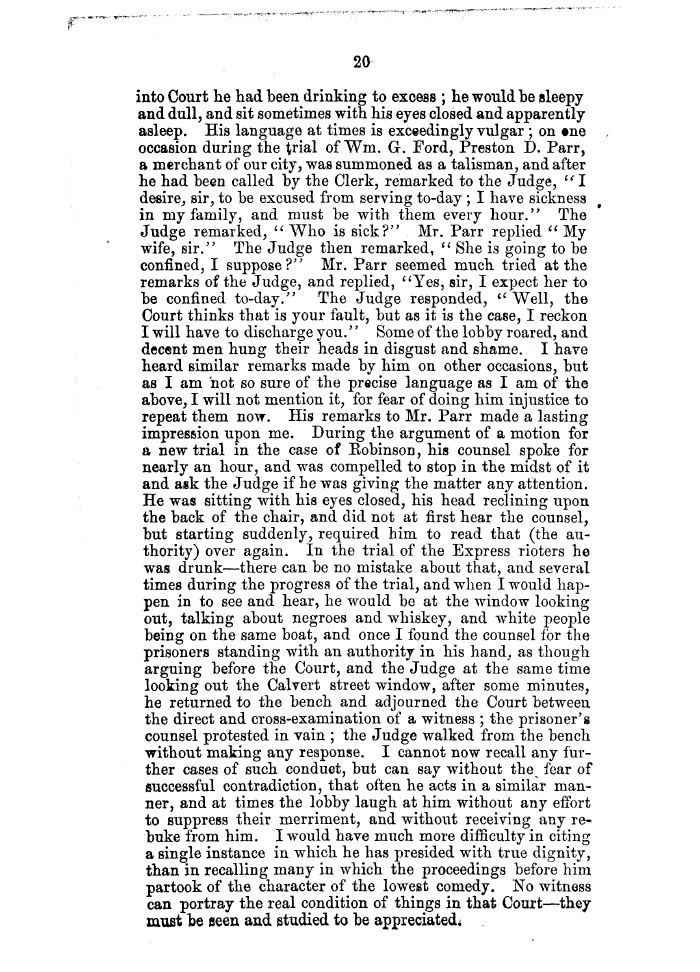|
20
into Court he had been drinking to excess ; he would he sleepy and dull, and sit sometimes with his eyes closed and apparently asleep. His language at times is exceedingly vulgar ; on tne occasion during the trial of Wm. G. Ford, Preston I). Parr, a merchant of our city, was summoned as a talisman, and after he had heen called by the Clerk, remarked to the Judge, ic I desire, sir, to be excused from serving to-day ; I have sickness in my family, and must be with them every hour." The Judge remarked, " Who is sick?" Mr. Parr replied " My wife, sir." The Judge then remarked, " She is going to be confined, I suppose?" Mr. Parr seemed much tried at the remarks of the Judge, and replied, "Yes, sir, I expect her to be confined to-day." The Judge responded, "Well, the Court thinks that is your fault, but as it is the case, I reckon I will have to discharge you.'' Some of the lobby roared, and decent men hung their heads in disgust and shame. I have heard similar remarks made by him on other occasions, but as I am not so sure of the precise language as I am of the above, I will not mention it, for fear of doing him injustice to repeat them now. His remarks to Mr. Parr made a lasting impression upon me. During the argument of a motion for a new trial in the case of Eobinson, his counsel spoke for nearly an hour, and was compelled to stop in the midst of it and ask the Judge if he was giving the matter any attention. He was sitting with his eyes closed, his head reclining upon the back of the chair, and did not at first hear the counsel, but starting suddenly, required him to read that (the authority) over again. In the trial of the Express rioters he was drunk—there can be no mistake about that, and several times during the progress of the trial, and when I would happen in to see and hear, he would be at the window looking out, talking about negroes and whiskey, and white people being on the same boat, and once I found the counsel for the prisoners standing with an authority in his hand^ as though arguing before the Court, and the Judge at the same time looking out the Calvert street window, after some minutes, he returned to the bench and adjourned the Court between the direct and cross-examination of a witness ; the prisoner's counsel protested in vain ; the Judge walked from the bench without making any response. I cannot now recall any further cases of such conduct, but can say without the fear of successful contradiction, that often he acts in a similar manner, and at times the lobby laugh at him without any effort to suppress their merriment, and without receiving any rebuke from him. I would have much more difficulty in citing a single instance in which he has presided with true dignity, than in recalling many in which the proceedings before him partook of the character of the lowest comedy. No witness can portray the real condition of things in that Court—they must he seen and studied to be appreciated*
|

